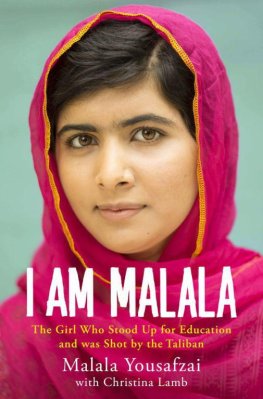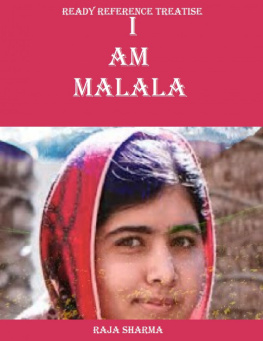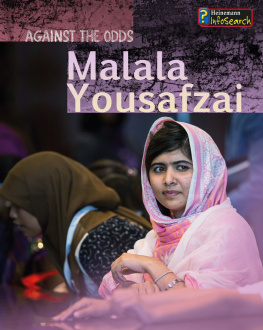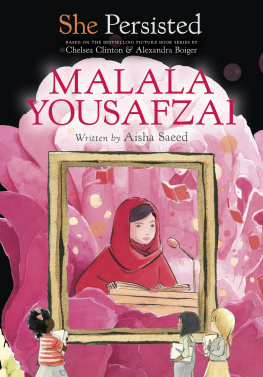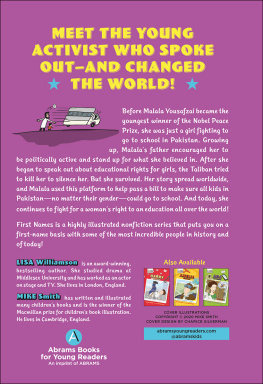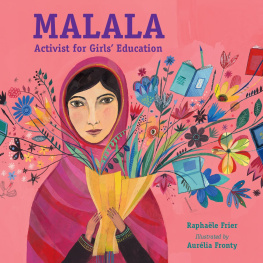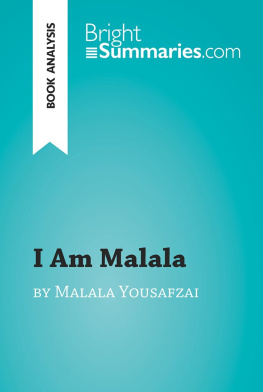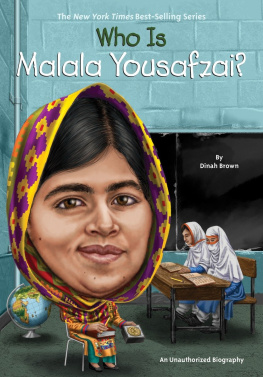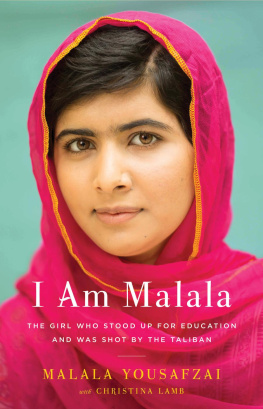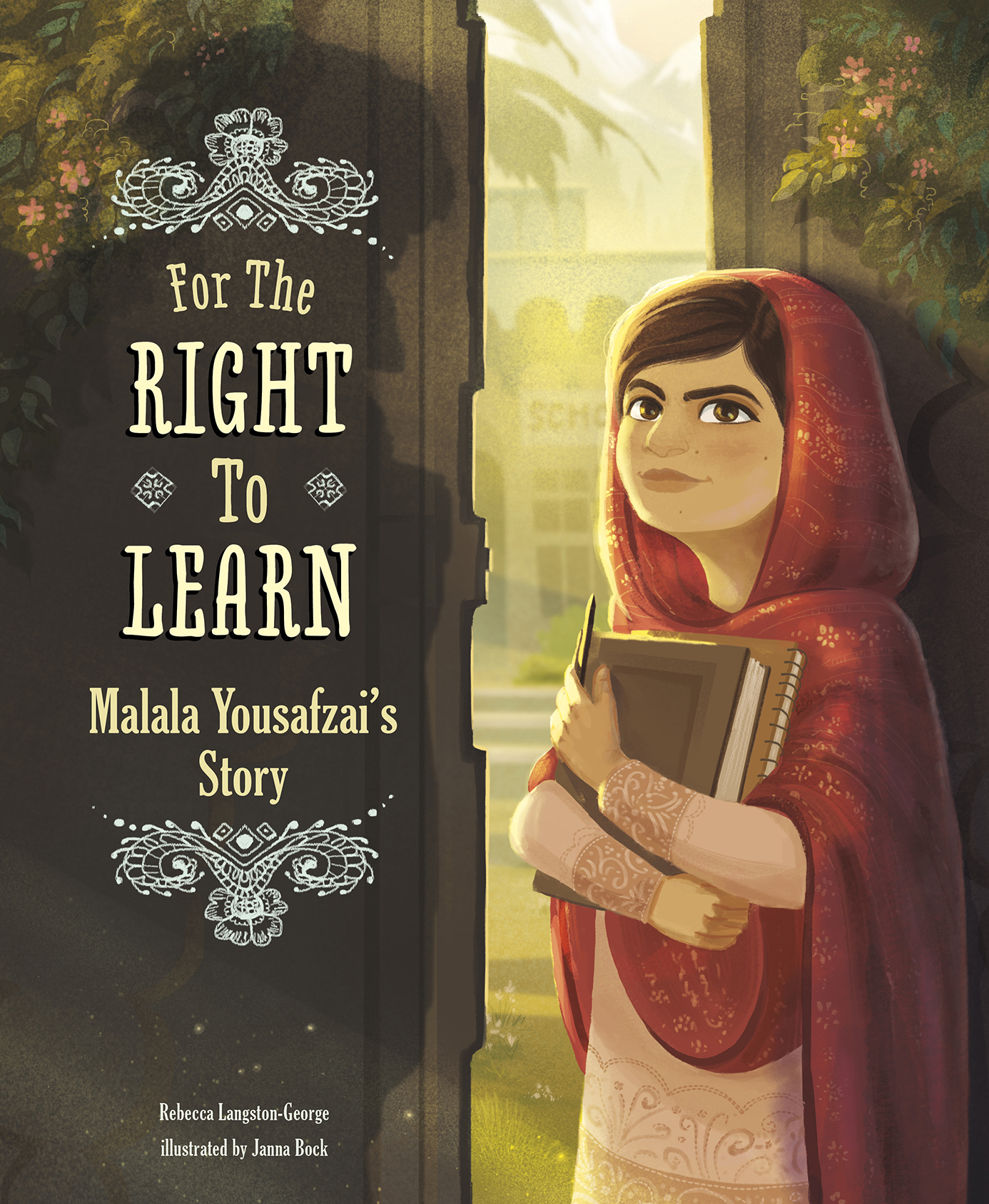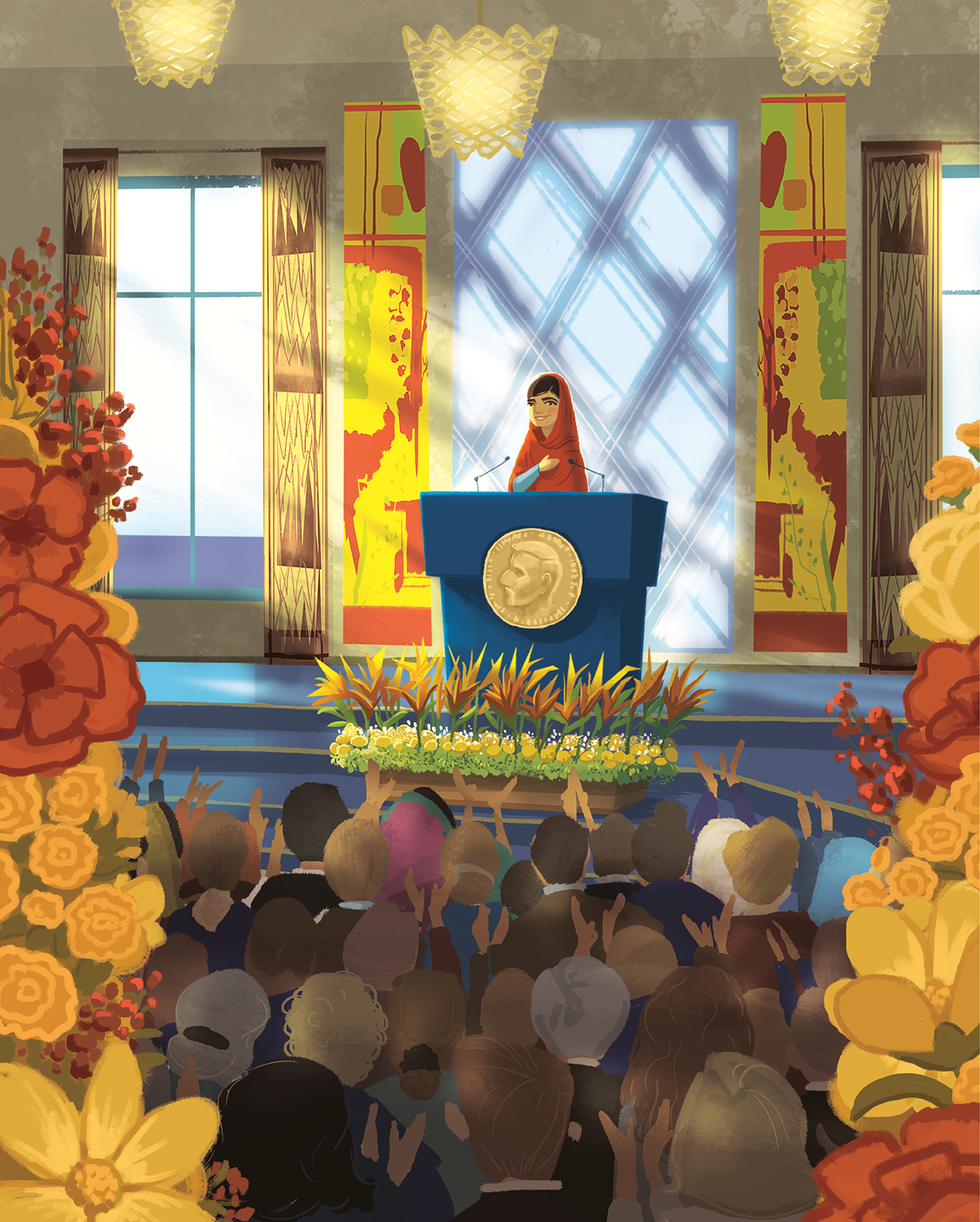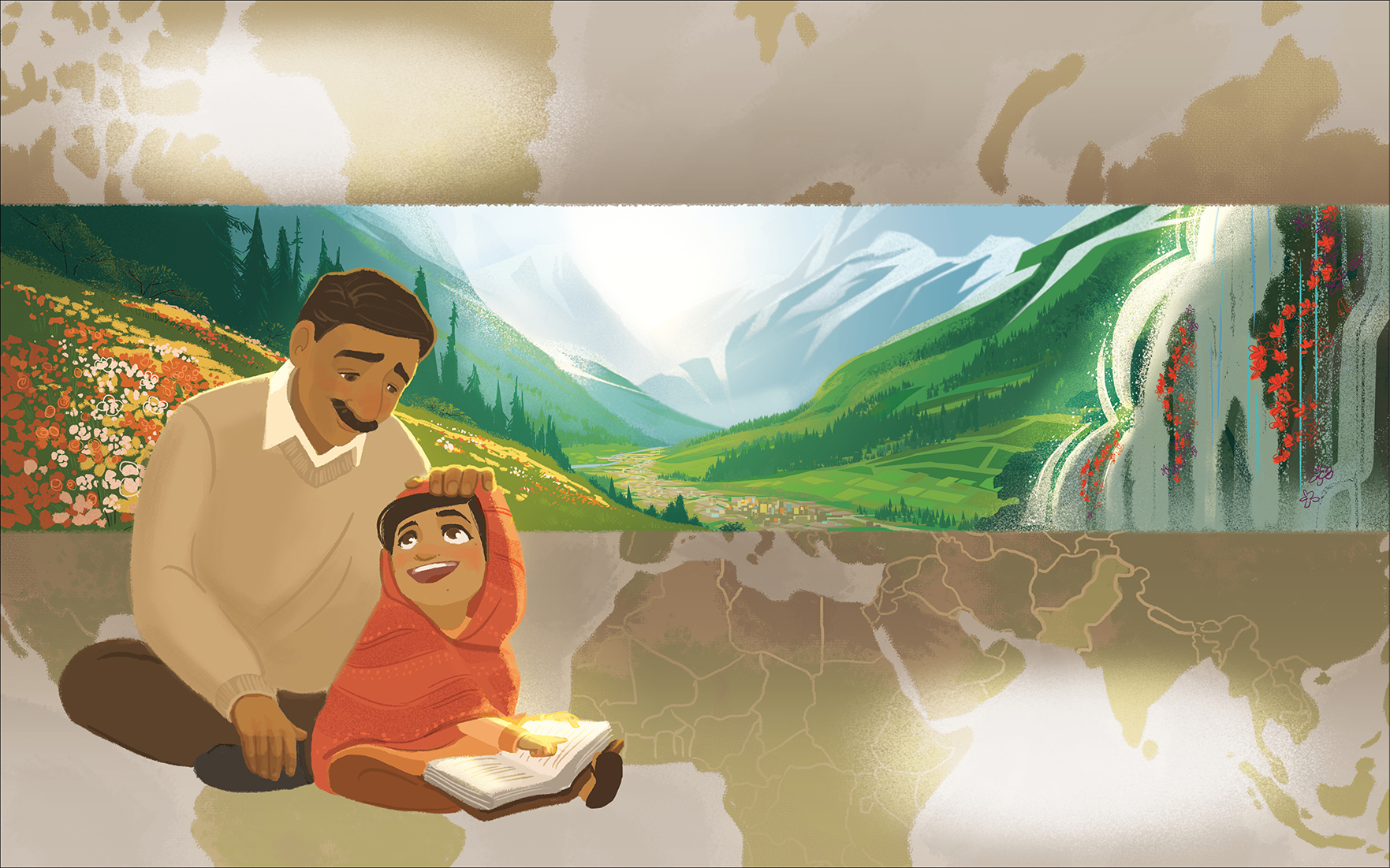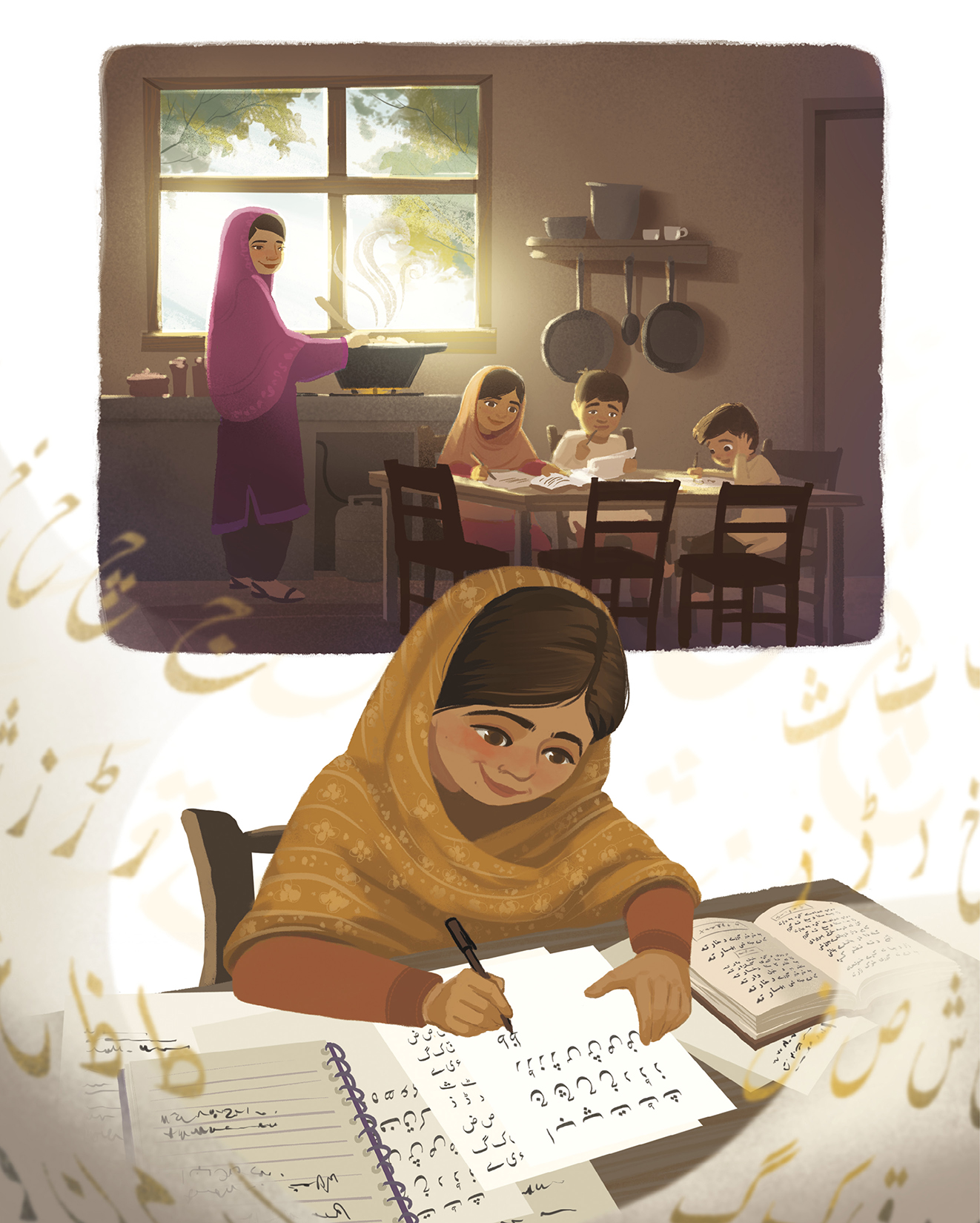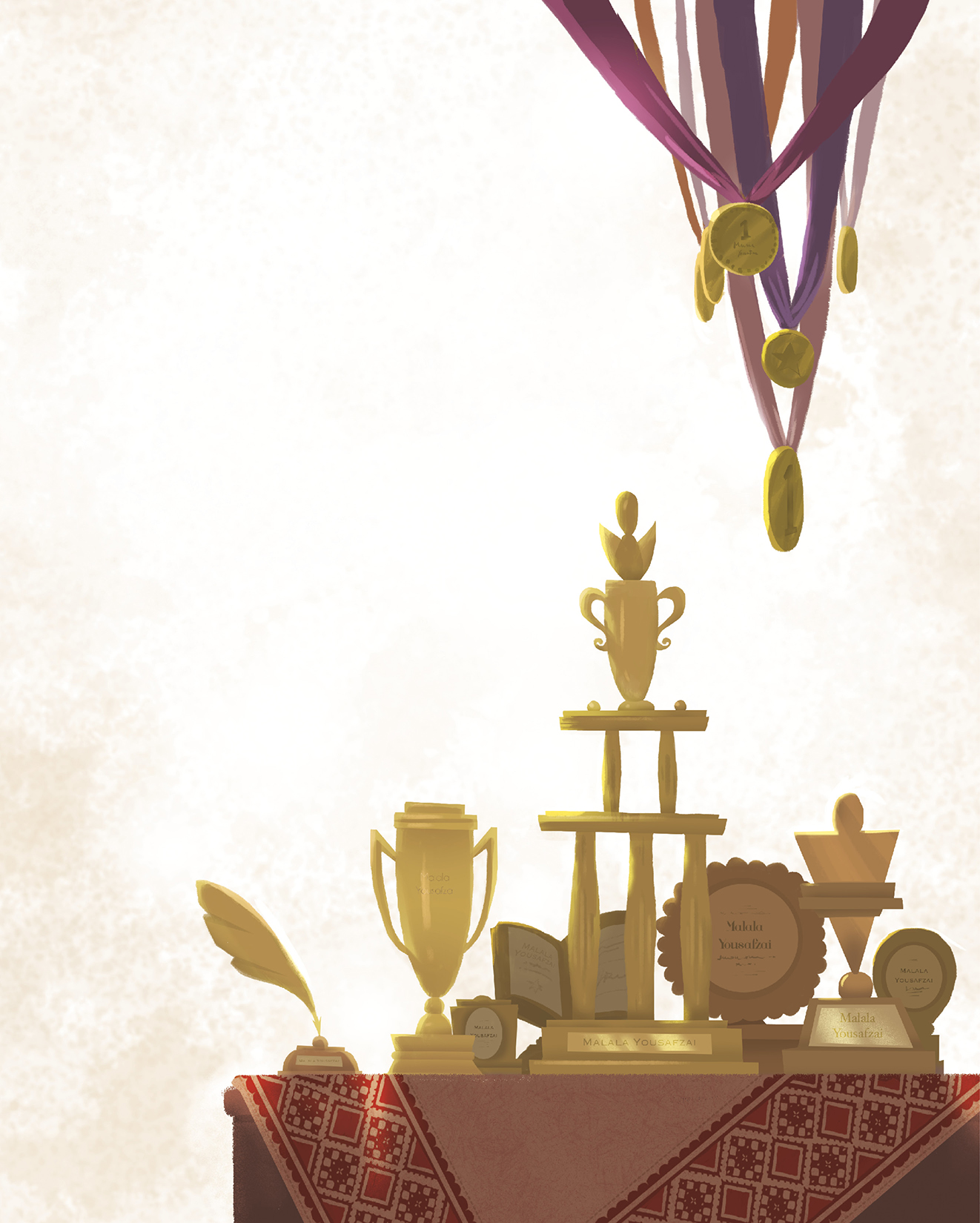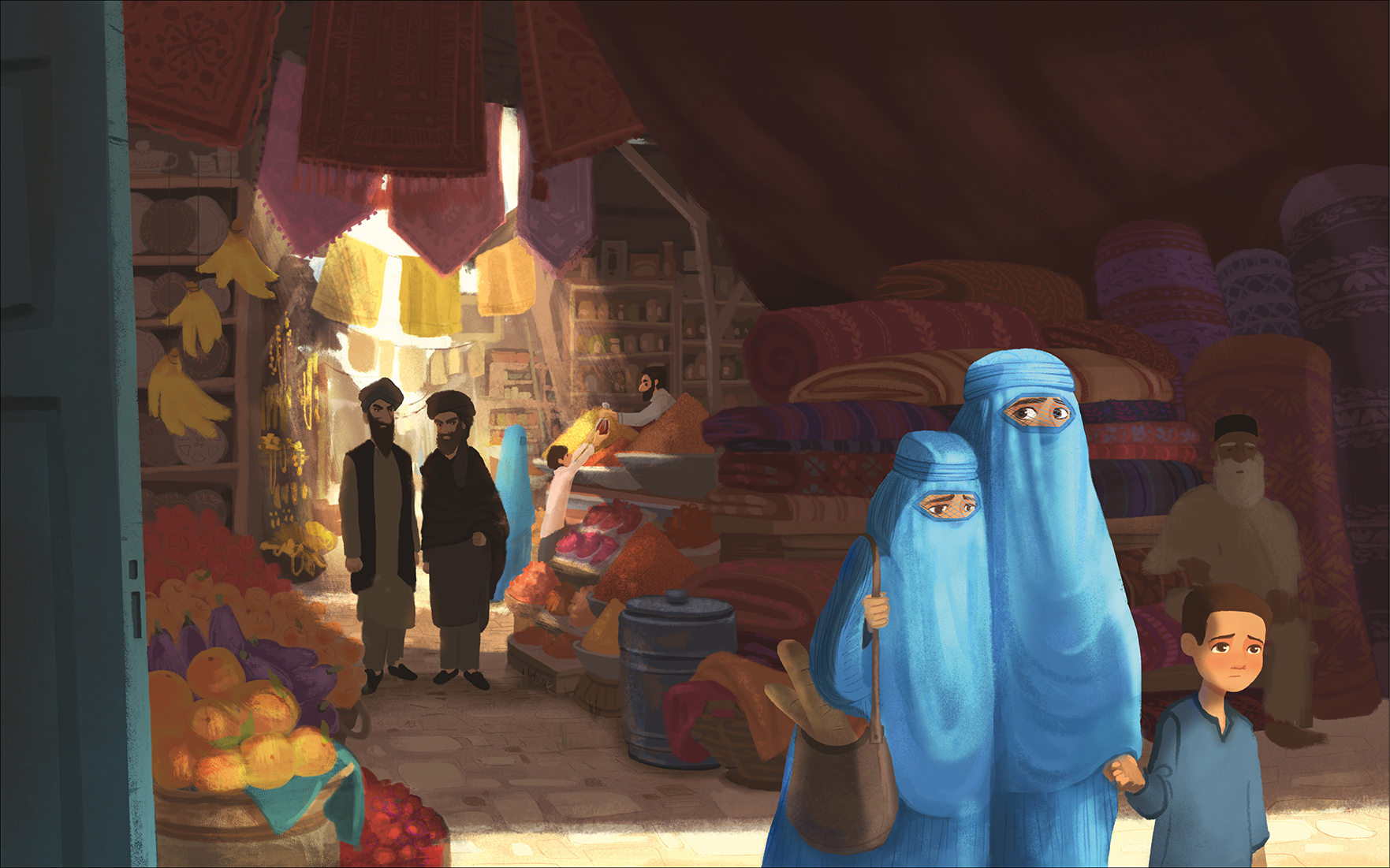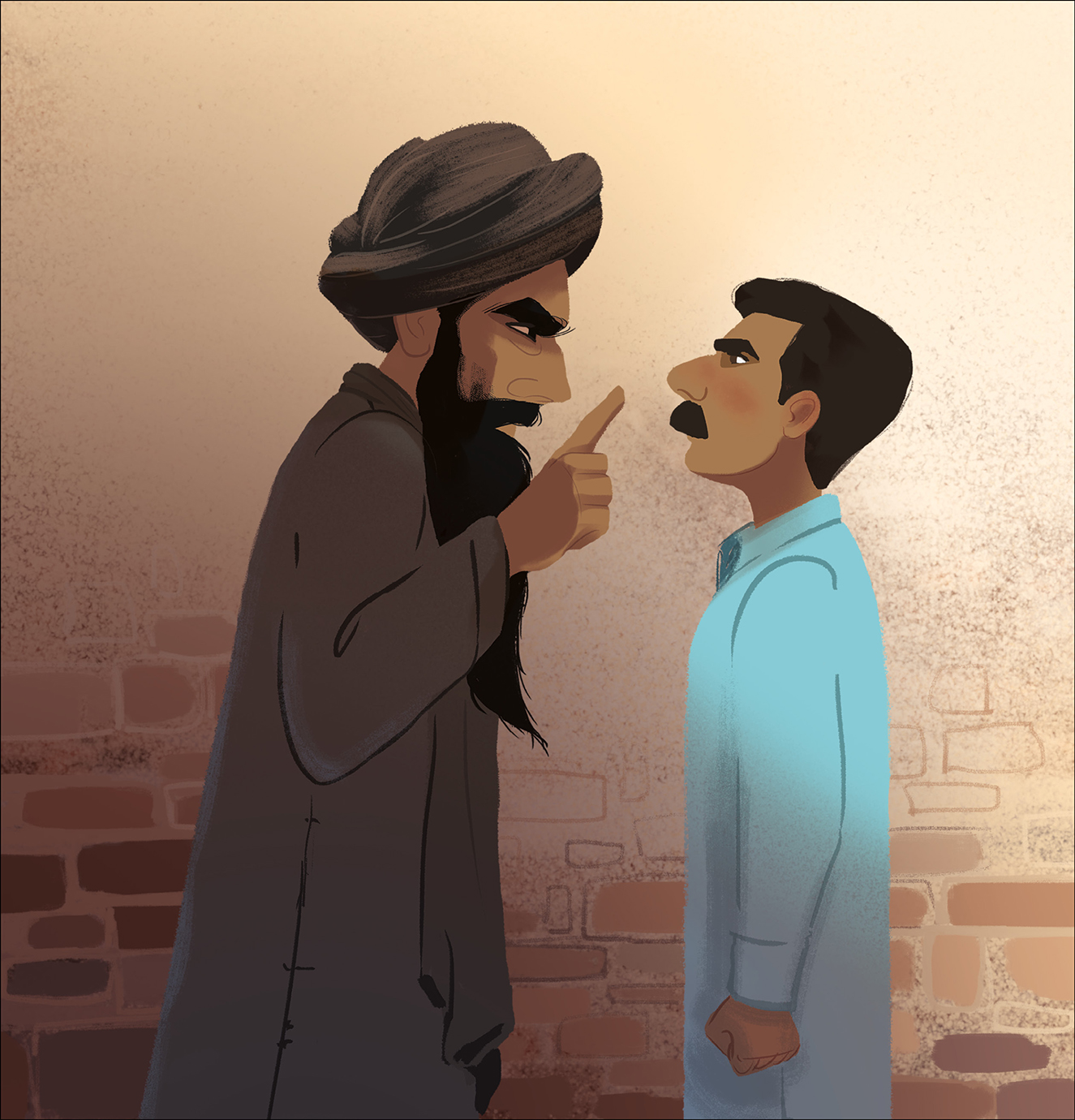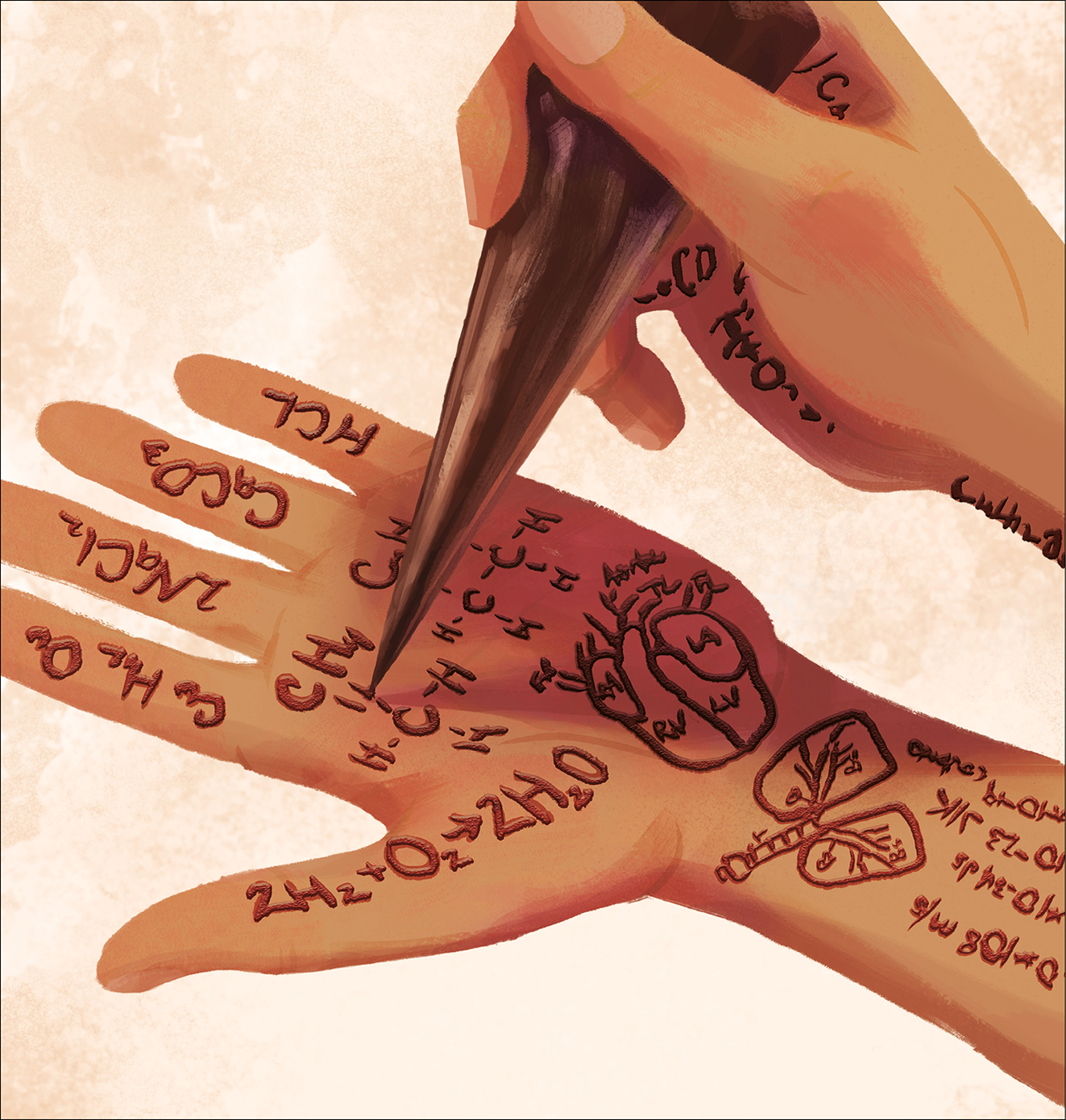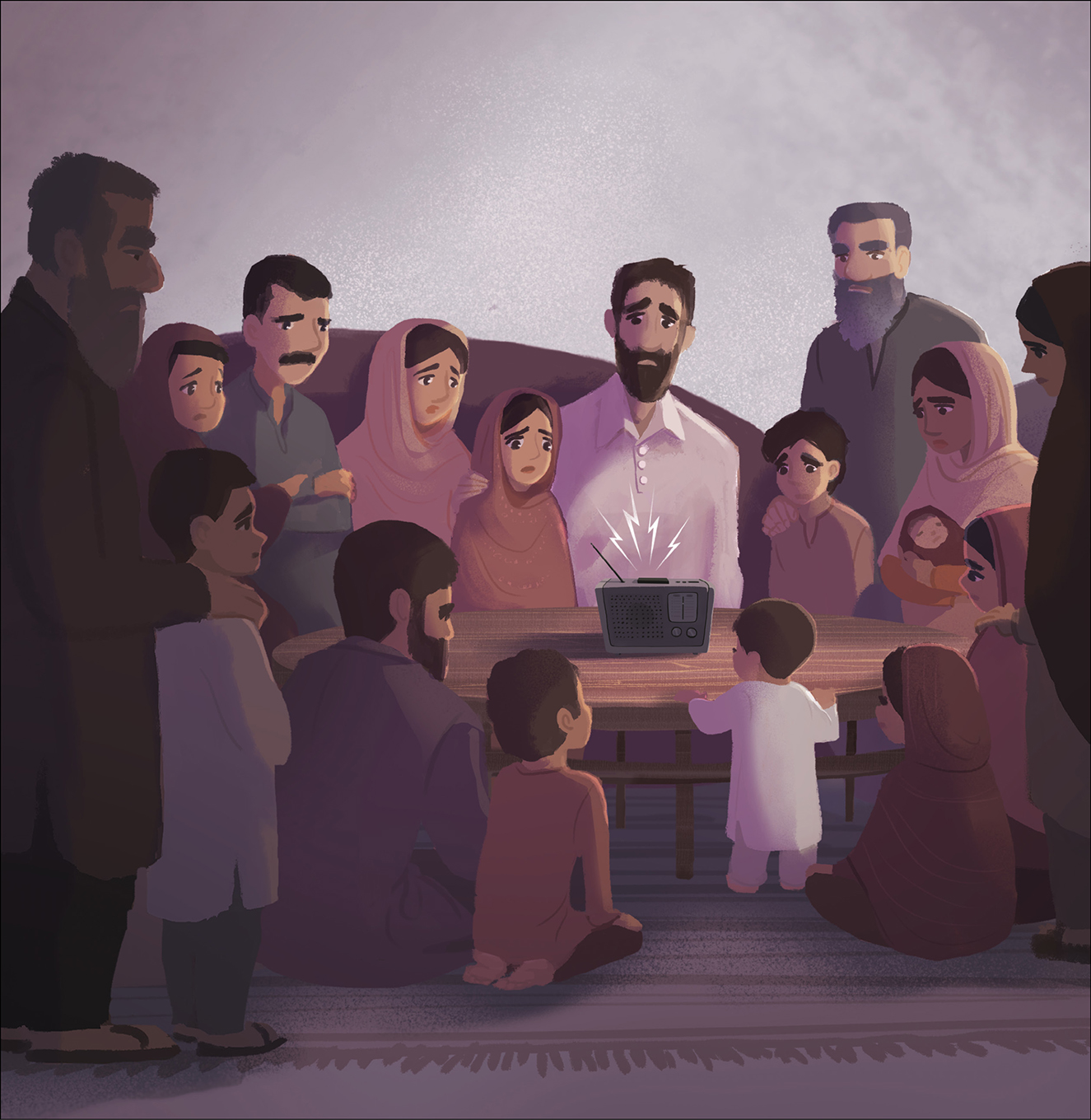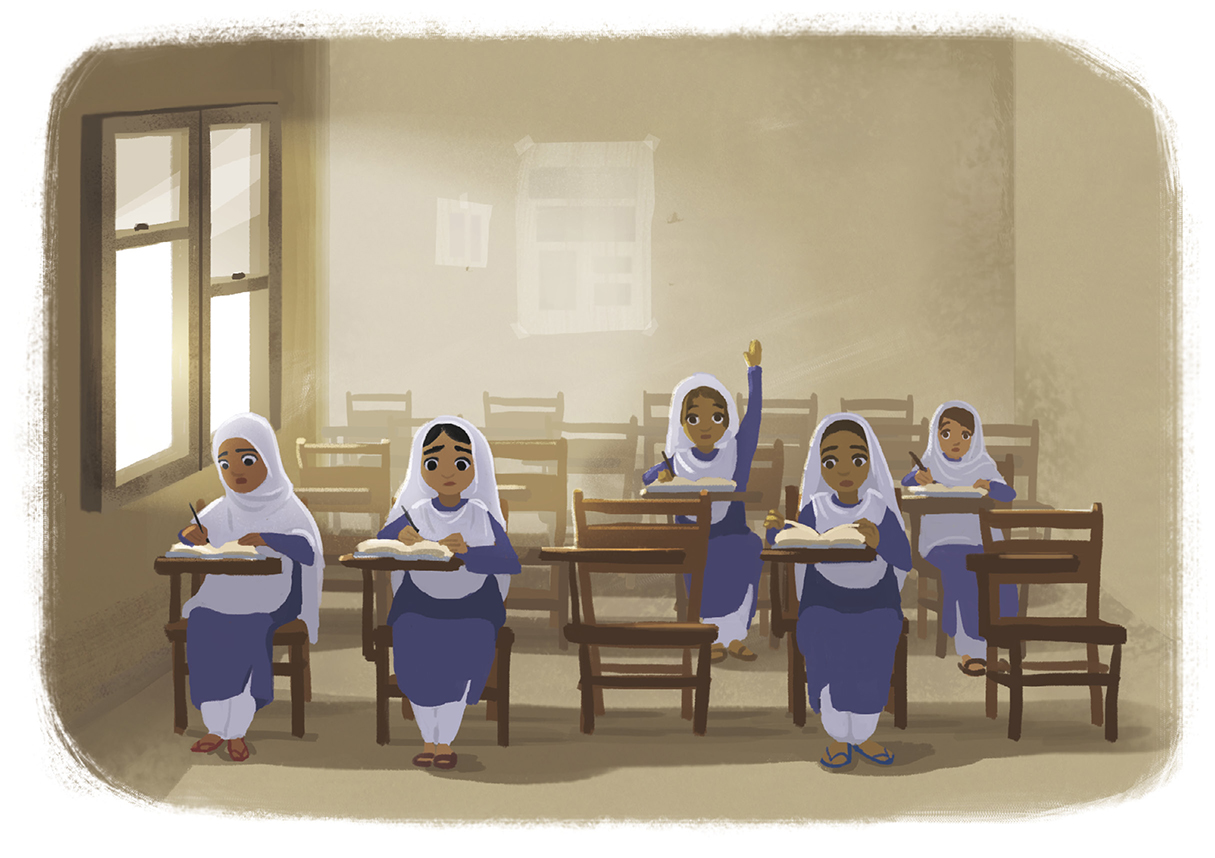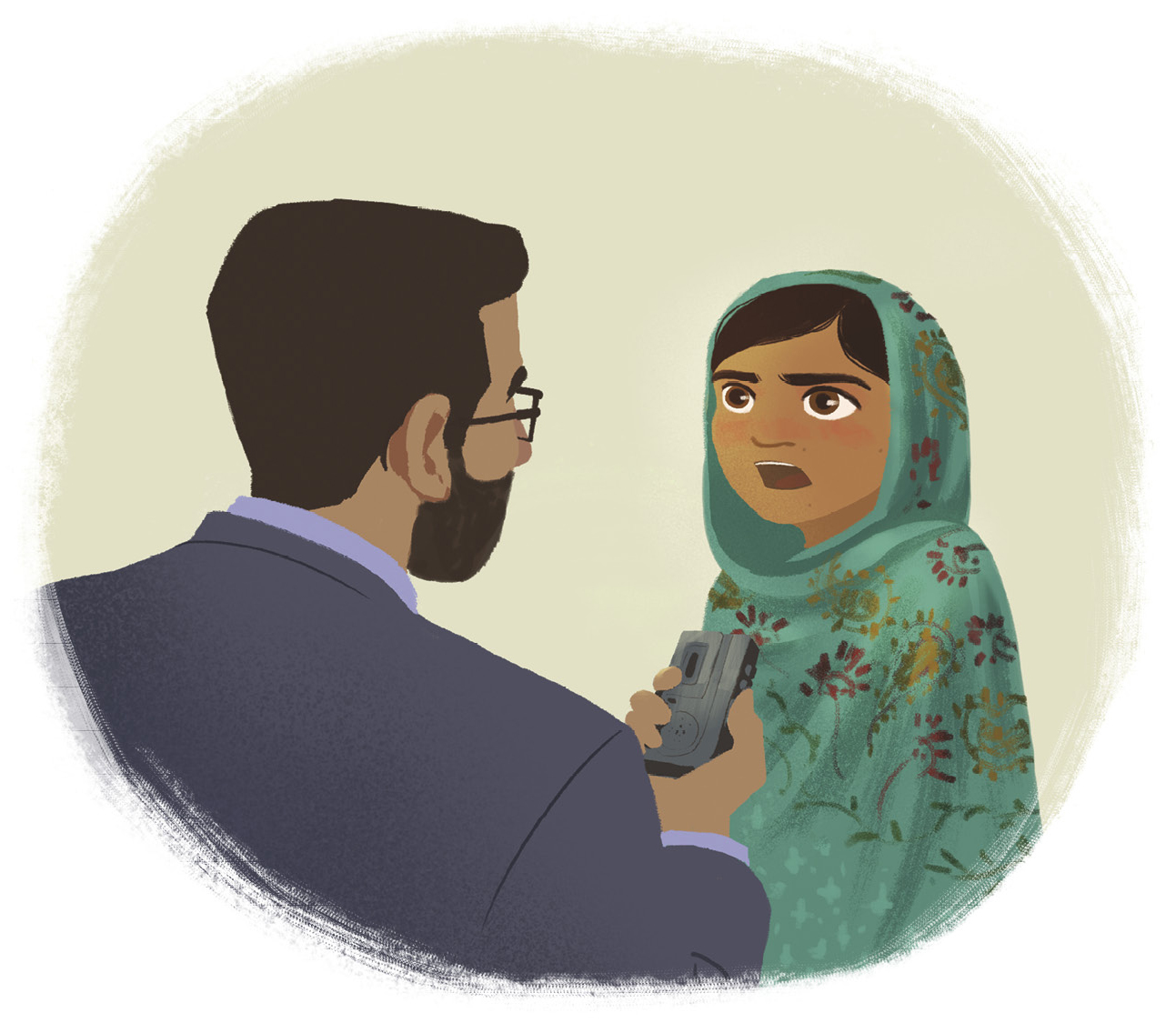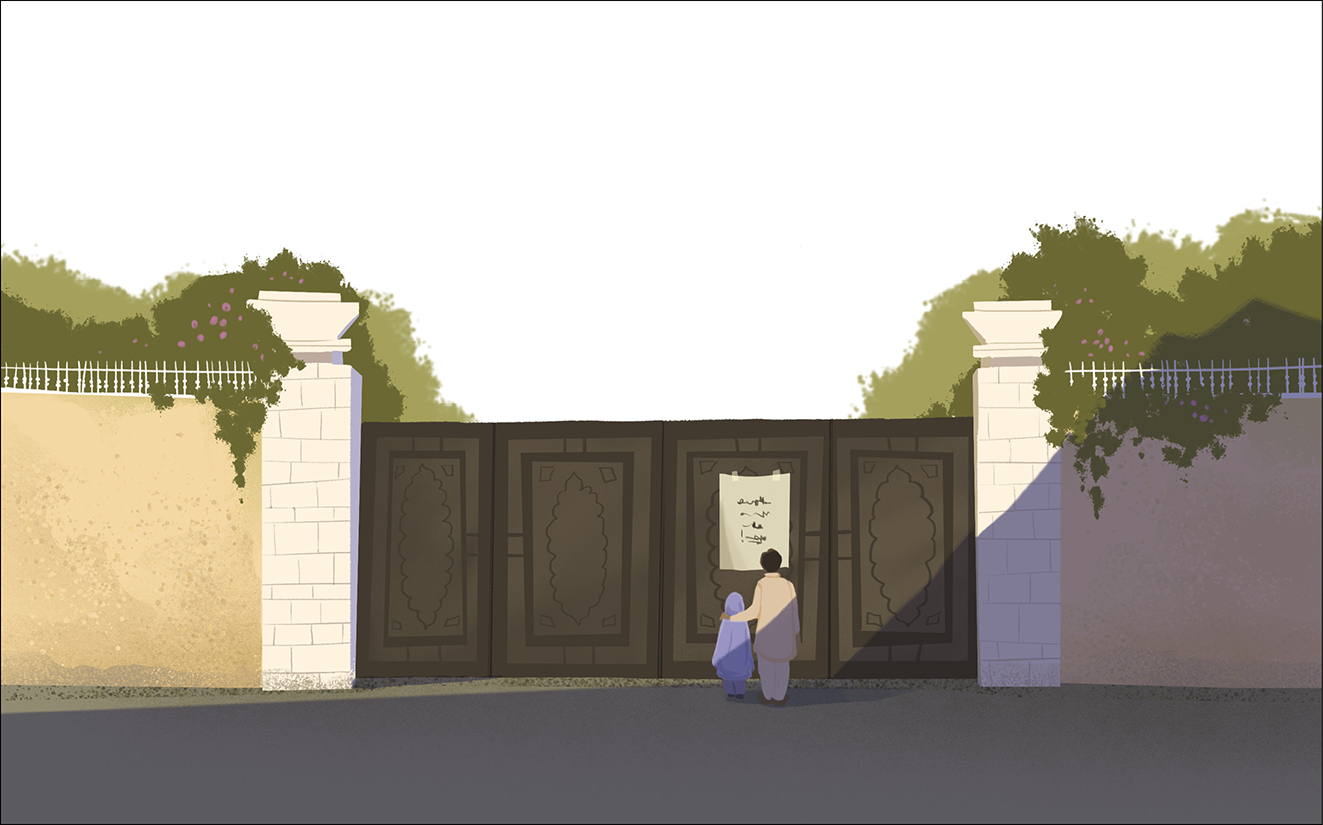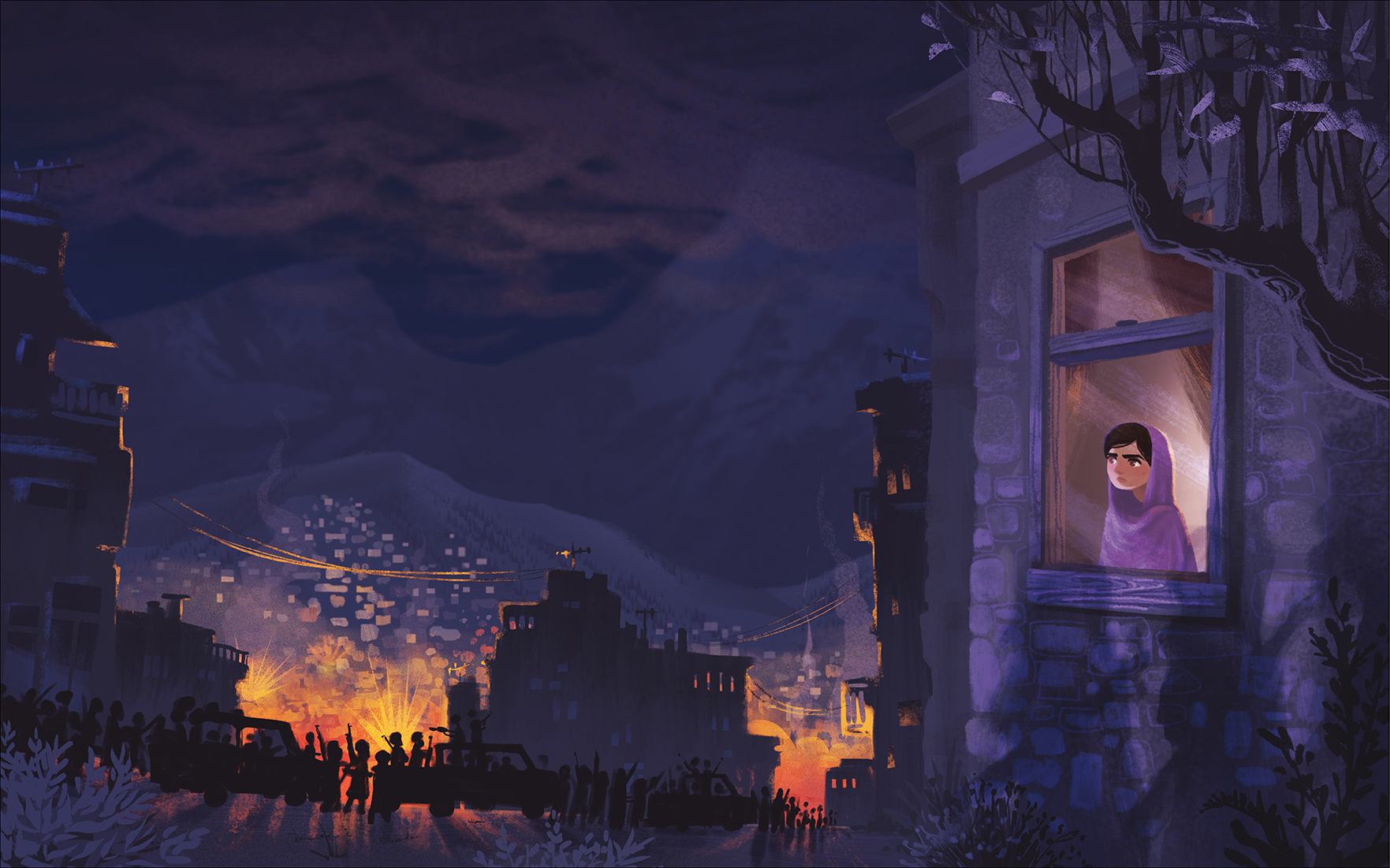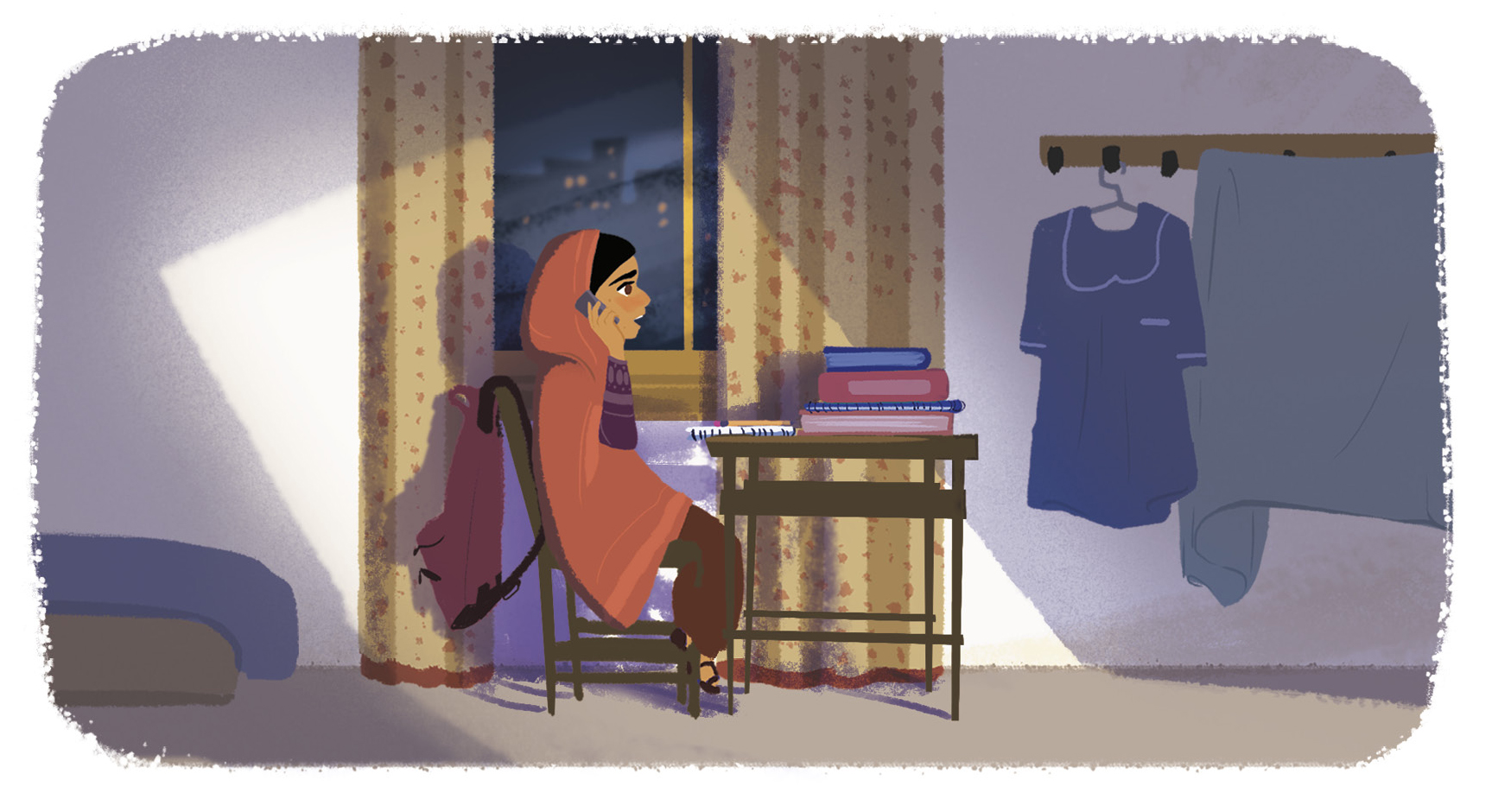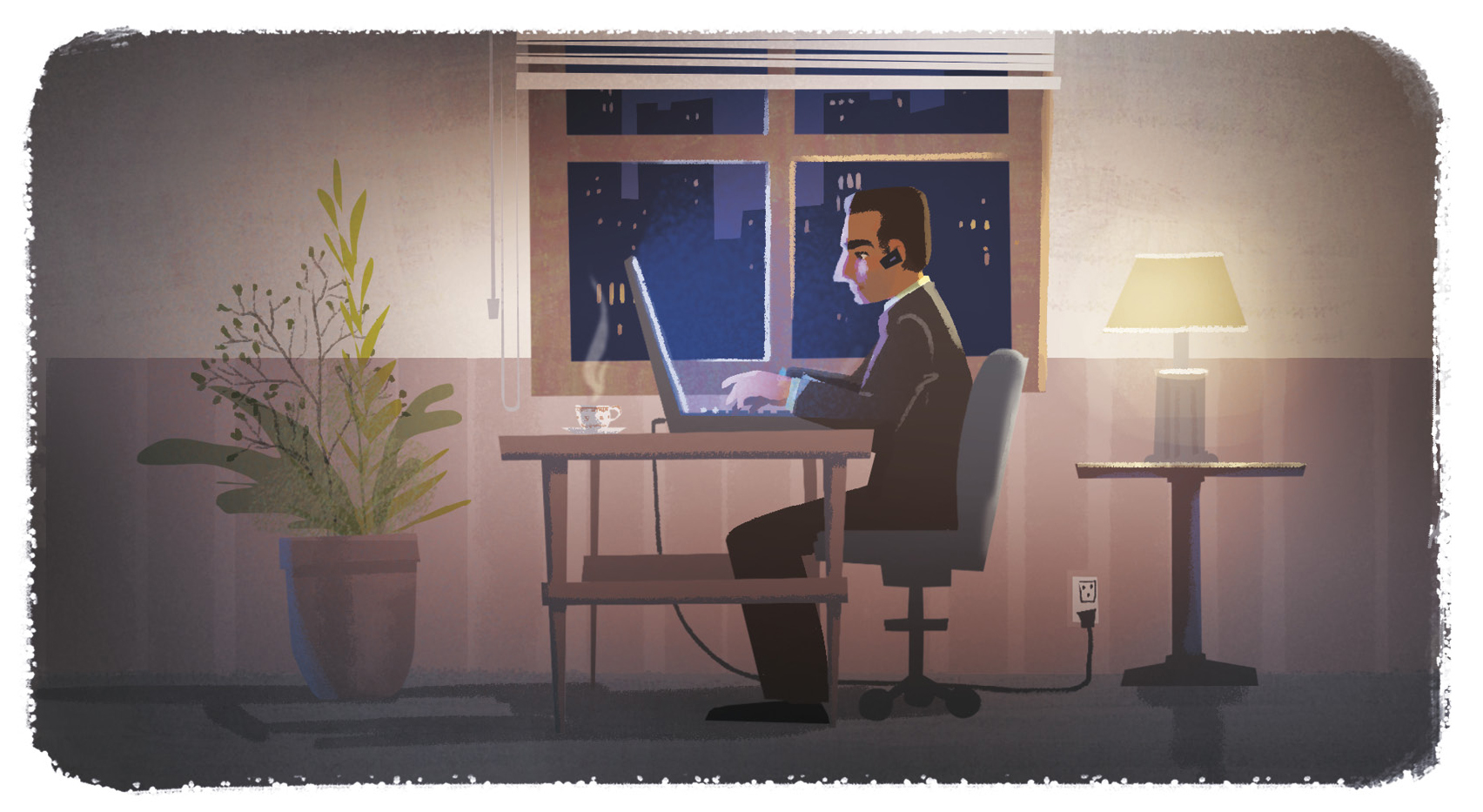Scarcely 5 feet tall and only 17 years old, a schoolgirl from Pakistan stood before the microphone. Her courage was legendary. World leaders leaned forward to listen. As Malala Yousafzai accepted the Nobel Peace Prize in Oslo, Norway, cameras carried her message around the world.
In her home country, a female could be beaten for public speaking. But Malala was not afraid. Strength, power, and courage pulsed inside her. She became the youngest Nobel Peace Prize winner on December 10, 2014. Malala lifted her voice for children everywhere.
This award is not just for me. It is for those forgotten children who want education. It is for those frightened children who want peace. It is for those voiceless children who want change.
Malala had become the voice for equal education. She almost lost her life for it.
Malalas own education started early. Her father, Ziauddin Yousafzai, ran a school in Mingora, a town surrounded by snowcapped mountains in the Swat Valley of Pakistan. From the time she could walk she visited classes. She even pretended to teach. Malala loved school.
Not all Pakistani children had Malalas opportunities. Many families couldnt afford to pay for school. Others only paid for their sons educations. Those parents believed daughters should cook and keep house.
Malalas own mother didnt learn to read or write when she was young. But Malalas father believed girls deserved the same education as boys. He encouraged Malala and her younger brothers, Khushal and Atal, to study. He also let many poor children attend his school for free.
Malala thrived at school. She worked hard and received many trophies and awards. Not only could she speak and write her native Pashto language, but she also spoke fluent English and Urdu, Pakistans national language.
But leaders who controlled the area were against letting girls go to school. They declared that females should be separated from males. They wanted to outlaw education for girls. They also tried to force women to wear garments called burqas to cover their entire bodies and faces.
Members of the Ziauddin to close his school because girls and boys used the same entrance. When Malalas father refused, the Taliban threatened the teachers until some of them quit.
Ziauddin grew worried. But Malala wasnt. to paint flowers and vines on their hands. Malala covered her hands with science formulas.
The Taliban grew stronger every day through violence and intimidation. As their strength grew, so did the rules. Men could not shave. Women had to cover their faces. Movies were banned. Radios throughout the Swat Valley crackled with the sound of the Taliban preaching.
Fear spread through Malalas homeland. Classrooms that were once full now had many empty seats.. We congratulate Aadab Tareen who has stopped going to school.
Ziauddin fought back, appearing on TV to stress the importance of education. Malala came with him. When a reporter asked for her opinion, she said, How dare the Taliban take away my basic right to education!
Later they found a letter taped to the school gate. The school you are running is Western You teach girls Stop this or you will be in trouble
Threats did not frighten Malala. She and her father kept demanding equal education for girls. They spoke to clubs, wrote letters to newspapers, and called journalists. Malala warned, If this new generation is not given pens, they will be given guns by the terrorists.
But the situation grew worse. Members of the Taliban began patrolling the streets with machine guns. They beat people who broke curfew. Bombs exploded in the night. Businesses that didnt follow Taliban rules were heaps of rubble by morning.
Then, in December 2008, came the terrible radio announcement. All girls schools will close. Starting January 15th no girls will be allowed at school. Even before the deadline, bombs started to rain down on nearby schools as warnings.
But bombs could not silence Malala. The British Broadcasting Corporation (BBC) wanted a girl to blog about the school closings. The girl blogger would tell firsthand how it felt to be denied an education. Fearing jail, beatings, and even bombs, all her friends refused. Malala volunteered.
She borrowed her , Gul Makai, from a Pakistani figure who had fought against British oppression long ago. Internet service and power were unreliable in Pakistan. So Gul Makai spoke by phone to a BBC reporter who typed her blog for the next two months. The blog first appeared in Urdu on January 3, 2009. Soon Malalas blog became popular, and the BBC translated it into English.
On January 14, 2009, she blogged, I am of the view that the school will one day reopen, but while leaving I looked at the building as if I would not come here again. Malala was sad but defiant. They can stop us going to school, but they cant stop us learning!


